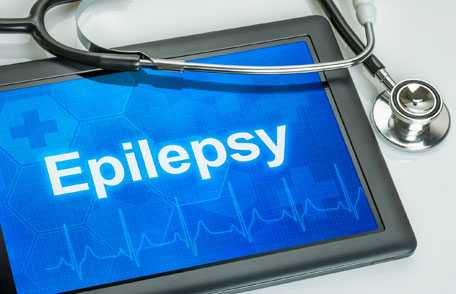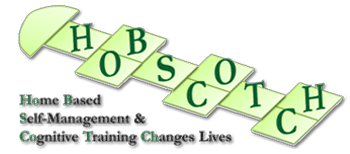Improving Memory in Adults with Epilepsy
 Learn how adults with epilepsy can improve memory problems and overall health.
Learn how adults with epilepsy can improve memory problems and overall health.
At some point, almost everyone has forgotten where they parked the car or placed the car keys. For people with epilepsy (also known as seizure disorder), memory lapses are more common. At least one-half of people with epilepsy have memory loss that affects their health. For instance, seizures or other health problems can lead to forgetting to take medicines as directed.
While memory loss is a challenge for many people with epilepsy, it is not always a major concern for health care providers. For those with epilepsy, treatment options for memory loss are limited.
CDC’s Prevention Research Center’s Program Seeks Solution
Few programs target memory problems in adults with epilepsy. To address this problem, Dartmouth College Prevention Research Center created a program known as HOBSCOTCH (HOme Based Self-management and COgnitive Training CHanges lives). In a recent study, researchers found that HOBSCOTCH improves overall health and memory in people with epilepsy.

HOBSCOTCH helps adults who have memory problems, and is delivered in person and over the phone.
HOBSCOTCH Improves Memory & Health
HOBSCOTCH gives participants skills and ways to solve memory problems that are useful in real-life situations. Led by a licensed health care provider, HOBSCOTCH training is delivered through in-person and telephone coaching sessions.
Participants learn:
- How memory works – This includes information about common memory problems.
- Relaxation techniques – These can reduce stress which is a major factor in memory loss.
- Problem solving skills – This teaches how to solve some common memory problems.
- Memory strategies – This includes learning new skills to improve how to remember things.
Training for HOBSCOTCH coaches is currently only offered at Dartmouth-Hitchcock Medical Center. CDC and its partners are also testing this program in Maine, New Hampshire, and Vermont.
Learn more about epilepsy self-management programs that improve quality of life, including free webinars and podcasts with epilepsy experts:
- Home Based Self-management and Cognitive Training Changes Lives (HOBSCOTCH)
- Managing Epilepsy Well (MEW) Network
- CDC’s Epilepsy Program
- CDC’s Prevention Research Centers Program
Reference
Caller, T.A., Ferguson, R. J., Roth, R. M., Secore, K. L., Alexandre, F. P., Zhao, W., Jobst, B. C. (2016). A Cognitive Behavioral Intervention (HOBSCOTCH) Improves Quality of Life and Attention in Epilepsy. Epilepsy & Behavior, 57, 111-117.
- Page last reviewed: February 9, 2017
- Page last updated: February 9, 2017
- Content source:
- National Center for Chronic Disease Prevention and Health Promotion, Division of Population Health
- Page maintained by: Office of the Associate Director for Communication, Digital Media Branch, Division of Public Affairs




 ShareCompartir
ShareCompartir